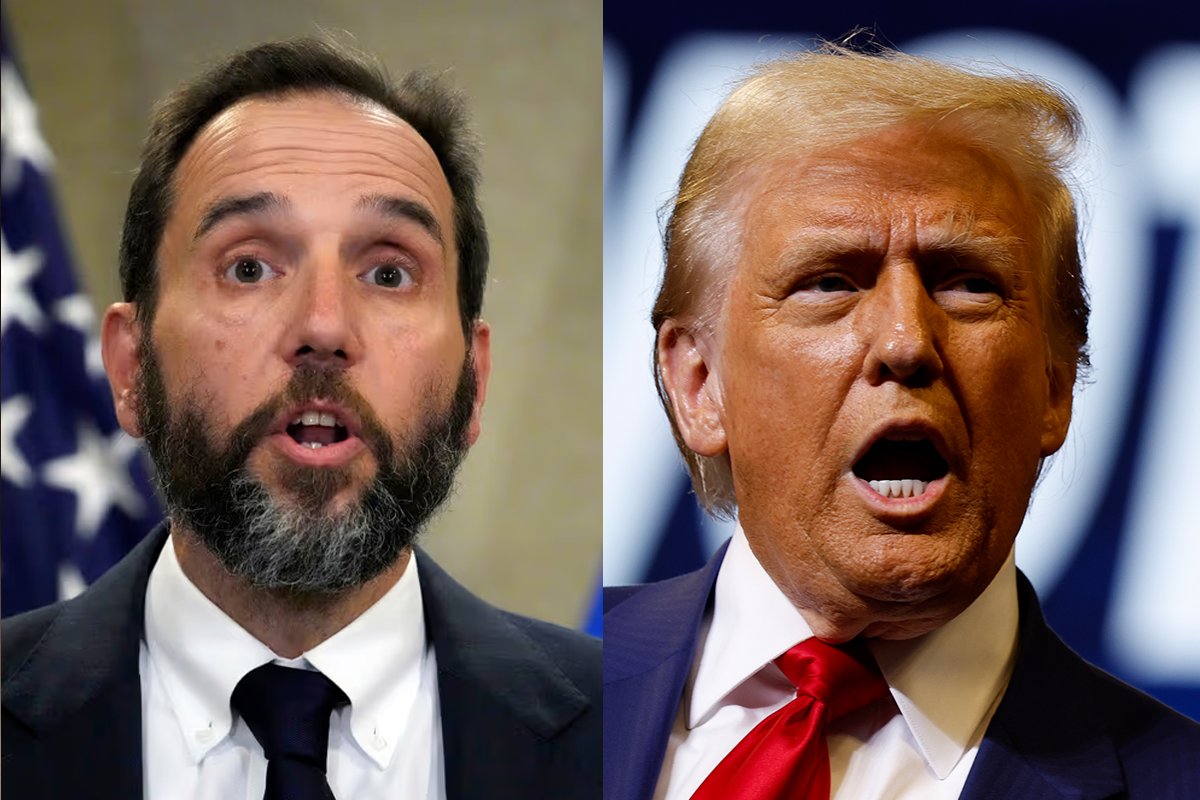The 11th United States Appeals Court has ordered Judge Aileen Cannon to rule within 60 days on the release of Special Counsel Jack Smith’s final report concerning the Mar-a-Lago case. This development could bring the dossier one step closer to public release amid reports that Mr. Smith has moved into a “counterattack” mode against former President Donald Trump.
The appellate court’s command to Judge Cannon came in the form of a succinct one-page order accusing her of “undue delay” in ruling on motions filed by American Oversight and the Knight First Amendment Institute at Columbia University. Both groups, which claim to be nonpartisan, seek the public disclosure of Mr. Smith’s report on the classified documents case—a case that never proceeded to trial.
Smith’s January 6 report, which was presented before a more amenable Washington D.C.-based judge, has already been made public. The 11th Circuit’s increased pressure on Judge Cannon—whom the court has previously overruled—coincides with a New York Times report stating that “Mr. Smith has told people in his orbit that he welcomes the opportunity to present the public case against Mr. Trump.”
The special counsel has declared his willingness to testify before Congress, but only if he is granted immunity. During the Biden administration, Mr. Smith charged Mr. Trump with multiple felonies related to the January 6 Capitol attack and, separately, with retaining classified documents at Mar-a-Lago.
The Mar-a-Lago investigation particularly enraged Mr. Trump because it began with an FBI search of the property, during which armed agents entered the Trump family’s private quarters, including Barron Trump’s bedroom and the First Lady’s bedchamber.
The case never went to trial after Judge Cannon, a Trump appointee in 2020, ruled that Mr. Smith was disqualified from prosecuting it. Following this, Mr. Smith moved to dismiss the charges against Mr. Trump after the former president won re-election and was believed to have “categorical” immunity as a sitting president.
In January of this year, Judge Cannon issued an injunction barring the release of the report’s summary. She reasoned that while the attorney general generally has discretion over such disclosures, releasing the report here could harm Mr. Trump’s two co-defendants in the case.
Once Mr. Trump took office, the Justice Department dropped charges against his two employees—grounds manager Carlos De Oliveira and valet Waltine Nauta—both of whom had resisted efforts by Mr. Smith to compel them to testify against Mr. Trump.
While the Mar-a-Lago report remains under lock and key, its tone may be inferred from Mr. Smith’s January 6 report. In that document, the prosecutor wrote that the “view that the Constitution prohibits the continued indictment and prosecution of a President is categorical and does not turn on the gravity of the crimes charged, the strength of the Government’s proof, or the merits of the prosecution.” Mr. Smith insists he could have convicted Mr. Trump “but for” the results of the 2024 presidential election.
Jameel Jaffer, executive director of the Knight First Amendment Institute, emphasized the importance of the Mar-a-Lago report, declaring, “This report is of singular importance to the public because it addresses allegations of grave criminal conduct by the nation’s highest-ranking official. There is no legitimate reason for the report’s continued suppression.” He now wants the 11th Circuit to issue a writ of mandamus ordering Judge Cannon to release the report.
One key question that Mr. Smith’s Mar-a-Lago report could illuminate is why the special counsel chose to bring the case in Florida’s “Sunshine State” rather than the more hospitable District of Columbia. The Washington Post reports that some in Mr. Smith’s inner circle found the decision “insane” and were “alarmed by what he saw as a huge gamble.” A deputy reportedly described the possibility of Judge Cannon drawing the case as “an existential threat.” Despite these concerns, Mr. Smith shrugged off the warnings.
No matter the outcome in Florida courtrooms, Mr. Smith appears increasingly inclined to share his thoughts on his two unsuccessful prosecutions of Mr. Trump. After months of silence, he is stepping into the spotlight.
During a keynote address at George Mason University, he stated, “What I see happening at the Department of Justice today saddens me and angers me.” Mr. Smith has also appeared in Britain with Andrew Weissmann, a paid MSNBC contributor and former top deputy to Special Counsel Robert Mueller, who is an avowed opponent of Mr. Trump.
In conversations with Mr. Weissmann, Mr. Smith called suggestions that his prosecutions were politically motivated “absolutely ludicrous.” Mr. Garland appointed Mr. Smith just two days after Mr. Trump declared his intention to seek the White House again.
Previewing the Mar-a-Lago report, Mr. Smith told Mr. Weissmann that he uncovered “tons of evidence” suggesting Mr. Trump willfully retained secret documents and attempted to “obstruct the investigation” into the classified materials that ended up at Trump’s Palm Beach mansion.
In response, Mr. Trump took to Truth Social last week to declare, “These thugs should all be investigated and put in prison. A disgrace to humanity. Deranged Jack Smith is a criminal!!!”
This broadside follows revelations that Mr. Smith, as part of his election interference probe code-named “Operation Arctic Frost”—named after a satsuma orange and likely an allusion to Mr. Trump—secured telephone data from Republican lawmakers.
Mr. Smith has been summoned by Congressman Jim Jordan to answer questions about “prosecutorial misconduct and constitutional abuses of his office.” In a letter, Mr. Smith’s lawyers stated their client is “prepared to answer questions about the Special Counsel’s investigation and prosecution, but requires assurance from the Department of Justice that he will not be punished for doing so.”
At least one Republican senator, Chuck Grassley, has expressed caution about offering Mr. Smith a platform. The 92-year-old lawmaker told CNN, “Jack Smith certainly has a lot of answering to do, but first, Congress needs to have all the facts at its disposal. Hearings should follow once the investigative foundation has been firmly set.”
Republicans may also subpoena Mr. Smith and initiate contempt proceedings if he declines to cooperate. The unfolding legal and political drama surrounding Mr. Smith’s investigations and reports continues to captivate observers nationwide.
https://www.nysun.com/article/jack-smith-goes-on-the-counterattack-against-trump-as-pressure-builds-to-publish-secret-mar-a-lago-dossier


